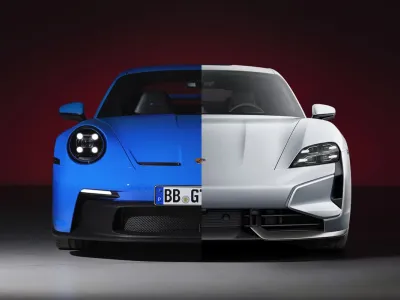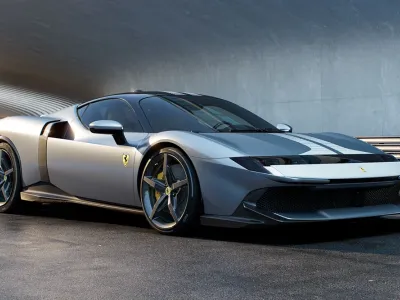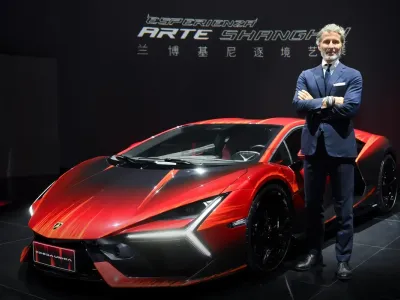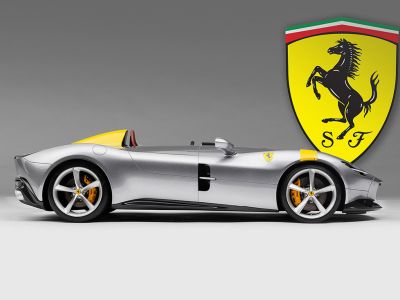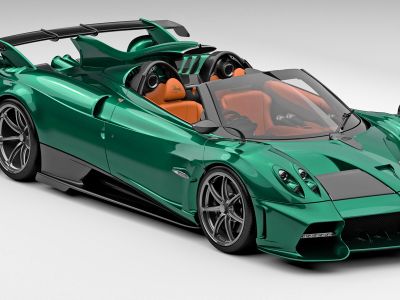It is quite common now to see luxury performance SUVs by almost every company in the segment. In big cities, where the market is significantly developed, they are not even a particularly special sighting, considering the overall sales numbers. The last one to join the pack is Ferrari with the upcoming Purosangue (Italian for Thoroughbred) after Aston Martin’s DBX.
Separate from the group and forging its own unique path is McLaren. Should they reconsider and start the development of their own SUV? Is it too late? Or there’s simply more to it?
MCLAREN’S CURRENT SITUATION
Last week McLaren published its Q3 report for the year. As the world recovers, like other luxury performance automakers, McLaren too registered some positive signs. By the end of Q3, the automaker delivered 897 vehicles, a sharp decline from the 3306 of 2019. But, considering how its key markets were hit more heavily during Q2, the 313 units delivered in Q3 show some timid hints of recovery.
In its first steps toward the Track2025 Strategy, McLaren recently teased the upcoming Artura. The brand’s first production hybrid V6 car is coming in the first half of 2021. This combination is becoming more popular as a consequence of the more stringent environmental regulations. Aston Martin is doing it with Valhalla and the future Vanquish Vision. Ferrari has teased for a while a V6-powered product line too.
 *Image teasing the new Artura by McLaren
*Image teasing the new Artura by McLaren
The hybrid powertrain itself, while maintaining the company’s core values, opens up new possibilities as well. According to the press release, Artura will be the quintessential expression of McLaren’s technology, featuring the new High-Performance Hybrid (HPH) powertrain and McLaren Carbon Lightweight Architecture (MCLA). It will establish the architecture for the next decade’s products.
 *GT Luxurious Interior by McLaren
*GT Luxurious Interior by McLaren
WHAT ABOUT SUVS?
SUVs are still among the most sought-after vehicles even though the segment has been growing for a while now. In the first half of 2020, in China which is one of the countries that started the trend, SUVs accounted for 47.7% of the total passenger car sales, which is a significant growth compared with the already sizable 36.3% of 2019 (中国汽车工业协会).
In the high-end luxury segment, results have been similar for Porsche, Bentley, and Rolls-Royce, and for Aston Martin, the premises with DBX look good as well.
 *New GT by McLaren
*New GT by McLaren
WHY MCLAREN SHOULD NOT DEVELOP AN SUV
The automotive industry is crazy about SUVs right now, whatever the segment. Bentley, Lamborghini, Rolls-Royce, Porsche, Mercedes, BMW, Audi and others (soon Ferrari too) sell huge amounts of SUVs. So, while the vast majority of experts and enthusiasts seem to be in favour of SUVs, I play the devil’s advocate and, going along with McLaren’s executives quoted before, try to go more in-depth on why an SUV would indeed be a bad idea for the company.
1. The segment is already competitive, and McLaren does not have the support of a larger automaker. This is, for instance, the case of all the brands under the VW umbrella, which share the MLB Evo Modular Platform, or Rolls-Royce with BMW. Others like Aston Martin (strong of a renewed partnership with Mercedes) took a long time to completely develop a new platform for the DBX.
Most of all though, all these companies had either that support or, to different extents, already had experience in a wider range of market segments, including the grand tourers one. A significant part of that know-how coming from GTs development can be transferred into an SUV. McLaren, on the other hand, likely lacks that level of expertise, having just approached the GT segment. On top of that, it would take them a long time to develop a totally new model only to join quite late a really crowded and competitive segment.
2. This might simply not be what McLaren clients want. Considering the market size, McLaren’s market share, and the sales figures achieved in just 10 years, there is definitely room for improvement in the sports and supercar segments.
A survey of luxury performance car owners shows how Performance, along with Design, are the two main reasons for clients to choose McLaren. Thus, it is more than likely that this niche of clients would not be interested in the driving experience offered by an SUV compared to that of a mid-engine sports car.
FACTORS AFFECTING BRAND CHOICE UPON BUYING A MCLAREN (RATED BY OWNERS FROM 1 TO 10)

3. The Automotive company is young and has not enough brand strength or, in a way, brand equity. With this, I do not mean that McLaren has a weak branding, but that compared to other competitors is much more focused, as it is its marketing.
But let us proceed with order. First, another important piece of information showed by the graph is that, on a scale from 1 to 10, Brand is not rated very high by McLaren owners (only 6.48), lower than the competition that scored well over 8 out of 10 (even if sizable, a larger sample could give partially different results). However, with the importance of the Performance factor in mind, pairing it with the Brand Advocacy shown below gives back a clearer picture. McLaren owners care the most about their cars’ performance, they are extremely satisfied with the product and likely to suggest it to others.
MCLAREN OWNERS BRAND ADVOCACY SCORE (RATED FROM 1 TO 10)

Going back to the initial statement, this lets me argue that customers would probably not accept an SUV that, due to its intrinsic characteristic, does not deliver the experience they expect. Differently, for other companies that have a much higher score for the Brand as an influence in the purchase decision, it is easier to imagine customers less interested in pure performance but more in the idea of buying into the brand itself through the vehicle trending right now. So, even though a significant share of purists criticise the choice of some manufacturers to go into the SUV segment, the numbers tell a different story.
Finally, McLaren’s marketing has been, so far at least, much more focused on showcasing industry-leading performance capabilities, like in the case of the 720s. Its competitors are very often purposely positioning themselves as lifestyle brands, which ties better with the concept and values behind an SUV.
4. McLaren had a good 2019 (albeit with stagnating sales numbers), but in 2020 it was impacted heavily by the pandemic. Dedicating the required resources to an SUV project, instead of further developing and strengthening its core business would be an unnecessary risk. As it would be unnecessary from a financial standpoint. McLaren is still a privately-owned company and has less pressure than a public one on meeting quarterly earnings expectations. Instead, more resources can be concentrated on R&D and long-term development objectives.
5. Finally, being the one player that differently from the rest of the industry remained “true” to its core values, might turn into an advantage by improving the brand’s reputation in the eyes of its clients.
Are these reasons enough to avoid the much-discussed SUV? There certainly could be arguments in favour of the opposite choice. Will the sports and supercar segment keep growing and be sufficient for McLaren to develop? Only time will tell. So far the strategy has paid off.
If you like what you read here and you would like to support me in developing this platform you can do it here:
IF YOU WOULD LIKE TO SUPPORT ME AND THIS WEBSITE’s DEVELOPMENT

